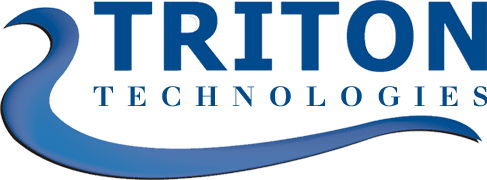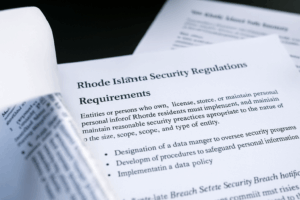As healthcare organizations increasingly rely on digital systems, they encounter a growing array of cyber threats. The shift towards electronic health records, telemedicine, and other digital tools has transformed healthcare by enhancing service delivery and operational efficiency. However, this digital evolution also exposes institutions to sophisticated and diverse cyber threats.
Cybercriminals target healthcare organizations primarily due to the highly sensitive nature of patient data, which includes personal identification information, medical histories, and financial details. When such data is breached, the consequences can be severe. Healthcare institutions may face significant financial losses, regulatory penalties, and damage to their reputation. More critically, a cyberattack can disrupt healthcare services, delay treatments, and even jeopardize patient safety.
Given these risks, fostering a cyber resilience culture within healthcare organizations is not merely a technical necessity but a strategic imperative. Cyber resilience encompasses an organization’s ability to anticipate, withstand, recover from, and adapt to cyber threats. For healthcare institutions, this means implementing comprehensive cybersecurity measures and creating a culture of awareness where every staff member understands and contributes to maintaining cybersecurity.
Understanding the Need for Cyber Resilience in Healthcare
The healthcare sector is particularly vulnerable to cyber threats due to the sensitive nature of the data it handles. Healthcare information security is paramount as data breaches can lead to severe consequences, including financial losses, regulatory penalties, and compromised patient safety. According to recent reports, the cybersecurity in healthcare industry is facing unprecedented challenges, with hospitals being prime targets for cyberattacks. Therefore, fostering a cyber resilience culture is crucial for mitigating these risks and ensuring a secure environment for both patients and healthcare professionals.
Key Strategies for Building a Cyber Resilience Culture
1. Develop Comprehensive Cybersecurity Training Programs
One of the foundational elements of building a cyber resilience culture in healthcare is implementing effective cybersecurity training programs. Staff members across all levels must understand their role in protecting sensitive information and be aware of potential threats. Here’s how to build an effective training program:
Customized Training Modules
Tailor training programs to the specific needs of different roles within the organization. For instance, clinical staff should receive training on protecting patient data and recognizing phishing attempts, while IT personnel need advanced training on network security and incident response.
Regular Updates
Cyber threats are constantly evolving, so it’s important to update training content regularly to address new risks and emerging technologies.
Interactive Learning
Use interactive methods such as simulations, role-playing, and real-world scenarios to make training more engaging and effective.
2. Promote a Culture of Awareness and Accountability
Creating a culture of awareness is vital for effective cybersecurity in healthcare. This involves more than just training; it requires embedding cybersecurity into the organizational culture. Here’s how to promote awareness and accountability:
Leadership Engagement
Leadership should actively support and promote cybersecurity initiatives. When leaders prioritize cybersecurity, it sets a tone for the entire organization and reinforces its importance.
Clear Communication
Regularly communicate cybersecurity policies, updates, and best practices to all staff members. This helps keep security top-of-mind and ensures that everyone is informed about their responsibilities.
Encourage Reporting
Foster an environment where staff feel comfortable reporting suspicious activities or security concerns without fear of reprimand. An open line of communication can help identify potential threats before they escalate.
Explore our Managed Service Offerings
Worcester’s Top Managed Service Provider
3. Implement Robust Policies and Procedures
Well-defined policies and procedures are essential for maintaining healthcare information security. These guidelines provide a framework for staff to follow and ensure consistency in security practices. Consider the following steps:
Develop Comprehensive Policies
Create and maintain clear policies covering data protection, access controls, incident response, and other critical areas of cybersecurity.
Enforce Procedure
Ensure that procedures are not only documented but also actively enforced. Regular audits and assessments can help verify compliance and identify areas for improvement.
Update and Revise
Regularly review and update policies to reflect changes in the threat landscape and technological advancements.
4. Conduct Regular Cybersecurity Drills and Exercises
Regular cybersecurity drills and exercises are crucial for preparing staff to handle real-world cyber incidents. These activities help reinforce training, test response plans, and identify areas for improvement. Key practices include:
Simulated Attacks
Conduct simulated cyberattacks to test staff’s ability to recognize and respond to threats. These exercises can reveal vulnerabilities and improve preparedness.
Tabletop Exercises
Use tabletop exercises to walk through potential scenarios and discuss response strategies. This helps staff understand their roles and responsibilities during an actual incident.
Performance Evaluation
Evaluate the effectiveness of drills and exercises and provide feedback to staff. Continuous improvement is key to maintaining a resilient cybersecurity posture.
5. Foster Continuous Learning and Development
Cybersecurity is a dynamic field, and continuous learning is essential for staying ahead of emerging threats. Encourage ongoing development and professional growth in the following ways:
Certifications and Courses
Support staff in obtaining relevant cybersecurity certifications and participating in specialized courses. This enhances their knowledge and skills in handling cybersecurity challenges.
Knowledge Sharing
Promote knowledge sharing among staff by organizing workshops, webinars, and discussion forums on cybersecurity topics.
Stay Informed
Encourage staff to stay informed about the latest trends and developments in cybersecurity through industry publications, conferences, and online resources.
6. Integrate Cybersecurity into Daily Operations
To build a cyber resilience culture, cybersecurity should be seamlessly integrated into daily operations. This involves embedding security practices into routine tasks and workflows:
Secure Practices
Ensure that secure practices are followed in everyday tasks, such as using strong passwords, encrypting sensitive data, and securely disposing of confidential information.
Collaboration
Foster collaboration between IT and clinical staff to address security concerns and implement solutions that align with clinical workflows.
Automation and Tools
Utilize cybersecurity tools and automation to enhance protection and streamline security processes. Automated systems can help detect and respond to threats more efficiently.
Measuring Success and Continuous Improvement
Building a cyber resilience culture in healthcare is an ongoing process. It’s important to measure the effectiveness of training and engagement efforts and continuously seek opportunities for improvement:
Performance Metrics
Track key performance metrics such as the number of reported incidents, response times, and compliance rates to assess the effectiveness of cybersecurity measures.
Feedback Mechanisms
Collect feedback from staff regarding training programs, policies, and procedures. This can provide valuable insights into areas that may need adjustment or enhancement.
Continuous Improvement
Regularly review and refine cybersecurity strategies based on performance metrics, feedback, and changes in the threat landscape.
Discover our IT Solutions for Your Industry
Worcester’s Top Managed Service Provider
How Triton Technologies Can Help
As healthcare organizations strive to build a robust cyber resilience culture, we at Triton Technologies offer comprehensive solutions tailored to the unique challenges of cybersecurity in healthcare. With our expertise in both technical and strategic aspects of cybersecurity, we are well-positioned to assist healthcare institutions in enhancing their cybersecurity posture. Here’s how we can make a significant impact:
1. Customized Cybersecurity Solutions
We provide tailored cybersecurity solutions specifically designed for the healthcare industry. Recognizing that healthcare information security requires a nuanced approach, we offer:
Risk Assessments
We conduct detailed assessments to identify vulnerabilities and risks specific to healthcare systems. These assessments help in understanding the unique threat landscape and developing strategies to address identified weaknesses.
Security Architecture Design
We design and implement robust security architectures that protect sensitive patient data and ensure compliance with regulatory standards such as HIPAA and GDPR.
2. Advanced Threat Detection and Response
Proactive threat detection and swift response are crucial for maintaining cybersecurity in healthcare. We offer:
Real-Time Monitoring
Our advanced monitoring solutions provide real-time visibility into network activity and potential threats. This allows for the early detection of suspicious activities and rapid response to potential breaches.
Incident Response Services
Our expert incident response teams can quickly address and mitigate the impact of cyberattacks. We ensure that healthcare organizations have a well-defined incident response plan and the support needed to manage and recover from security incidents.
3. Comprehensive Training and Awareness Programs
Building a cyber resilience culture requires effective training and awareness initiatives. We support healthcare organizations with:
Tailored Training Programs
We offer customized training sessions that address the specific needs of healthcare staff. These programs cover best practices for data protection, recognizing phishing attempts, and maintaining overall cybersecurity hygiene.
Ongoing Awareness Campaigns
We implement strategies to keep cybersecurity at the forefront of staff consciousness. This includes regular updates, simulated phishing exercises, and interactive workshops designed to reinforce secure practices.
4. Regulatory Compliance and Best Practices
Navigating regulatory requirements is a critical aspect of cybersecurity for hospitals and other healthcare entities. We provide:
Compliance Support
We guide you in achieving and maintaining compliance with healthcare regulations such as HIPAA, GDPR, and NIST. Our services help ensure that all security measures align with regulatory standards.
Policy Development
We assist in developing and implementing comprehensive cybersecurity policies and procedures that adhere to best practices and address the unique needs of healthcare organizations.
5. Technology Integration and Optimization
Integrating advanced cybersecurity technologies effectively is key to enhancing healthcare information security. We offer:
Technology Solutions
We implement cutting-edge cybersecurity technologies, including firewalls, intrusion detection systems, and encryption tools, tailored to the healthcare environment.
System Optimization
We provide ongoing support to optimize and update security systems, ensuring they remain effective against emerging threats and technological advancements.
6. Continuous Improvement and Support
Cybersecurity is an ongoing process that requires continuous improvement. We provide:
Regular Audits
We conduct regular security audits to assess the effectiveness of current measures and identify areas for improvement.
Continuous Support
We offer ongoing support and consultation to adapt to new threats and technological changes. Our services ensure that healthcare organizations remain resilient and responsive in the face of evolving cybersecurity challenges.
At Triton Technologies, we are dedicated to enhancing cybersecurity in healthcare by offering a comprehensive range of solutions designed to address the unique challenges faced by the industry. From customized security solutions and advanced threat detection to tailored training programs and compliance support, we are committed to helping healthcare organizations build and maintain a strong cyber resilience culture. By partnering with us, healthcare institutions can effectively protect sensitive patient data, ensure regulatory compliance, and safeguard their operations against the growing threat of cyberattacks. Ready to strengthen your cybersecurity posture? Reach out to us to learn more about how we can assist your healthcare organization in building a robust cyber resilience culture.
Discover Our Compliance Management Solutions
Worcester’s Leading Provider of Compliance Services



